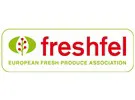Freshfel Europe supports the EU’s plans to revise its Trade Strategy, an essential move to ensure the EU is ready to tackle the growing challenges impacting fresh fruit and vegetables trade , particularly in the aftermath of the COVID-19 crisis. In particular, the sector urges the European Commission to enhance the assertiveness of its approach to trade policy, especially regarding tackling sanitary and phytosanitary (SPS) barriers, which are deeply impacting the ability of the sector to exploit its full potential to trade.
This is necessary to ensure EU exports of fruit and vegetables revert current negative trends experienced since the Russian embargo (loss of 22% in their volume since 2014) and successfully diversify and gain access to new attractive markets despite the uncertain international trade environment. The new EU Trade Strategy should effectively assist key partners, particularly developing countries, to cope with EU legislation and standards to continue accessing the Single Market, ensuring year-round supply of affordable, varied fresh fruit and vegetables to EU citizens.
As outlined in Freshfel Europe’s response to the EU public consultation on a roadmap for an EU trade & investment policy review, the new strategy should seek to fully exploit the potential of existing multilateral and bilateral agreements with trade partners and, if needed, make use of more assertive tools on top of ‘soft’ engagement to ensure reciprocity in trade relations. Moreover, the new EU Trade Strategy should seek further SPS facilitations with trade partners to ensure faster, less burdensome fruit and vegetables access to third country markets, either via multilateral WTO and IPPC commitments, SPS Chapters in FTAs or other bilateral agreements, formal or informal. A reinforced internal coordination among EU services, Member States and the EU private sector would also help secure faster opening of third country markets for all EU Member States and fruit and vegetables categories. The sector expects that the prompt appointment of the Chief Trade Enforcement Officer will enable this work to be effectively implemented.
Freshfel Europe believes the revised EU Trade Strategy should contribute to the EU’s green and digital objectives. To ensure this, the EU should effectively assist trade partners to achieve environmental goals through so-called Green Alliances, as outlined in the Farm to Fork Strategy. Technical support should also be targeted to developing partners, particularly key suppliers in Africa and America, so they can cope with EU legislation to continue accessing the EU Market. Furthermore, the EU should translate its ambitions to become ‘fit for the digital age’ into concrete solutions that facilitate trade operations, implementing for instance electronic transmission of import and export certification, for which the sector and public authorities have shown its readiness during the COVID-19 pandemic.
 For more information:
For more information:
Freshfel Europe
Tel: +32 (0)2 777 15 80
Email: [email protected]
www.freshfel.org
